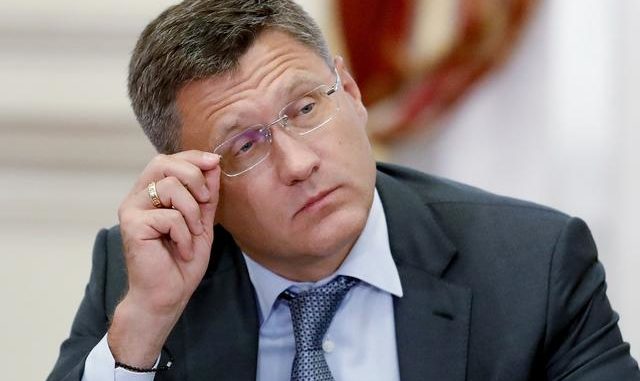
Leadership changes in Saudi Arabia’s oil industry will have no effect on cooperation between Moscow and Riyadh, two top Russian officials said, indicating the shake-up won’t derail a global pact to support oil prices by curbing output.FILE PHOTO: Russian Energy Minister Alexander Novak adjusts glasses during a meeting chaired by Prime Minister Dmitry Medvedev in Astrakhan, Russia August 30, 2019. Sputnik/Dmitry Astakhov/Pool via REUTERS
Separately, senior sources from OPEC and the oil industry said they expected Saudi Arabia to stick to its policy of restraining oil output as long as Riyadh wants to sell a stake in state oil firm Aramco.
Saudi Arabia this week named a replacement for Khalid al-Falih as Aramco chairman, and a few days earlier created a ministry for industry and mineral resources separate from the energy ministry, in a move that appears to diminish Falih’s authority. He remains Saudi energy minister.
Russian Energy Minister Alexander Novak praised Falih and said the Organization of the Petroleum Exporting Countries would continue to coordinate output with non-OPEC producers.
“We will continue our international cooperation with our colleagues, with my friend Mr. Falih,” Novak told reporters. He said he planned to visit Saudi Arabia to prepare for Russian President Vladimir Putin’s trip there scheduled in October.
Ties between OPEC kingpin Saudi Arabia and non-OPEC Russia have developed since 2016 after the producer group and a number of non-member countries formed the so-called OPEC+ alliance.
Oil has risen 9% this year since a new OPEC+ supply pact took effect, despite concerns about slowing economic growth.
Kirill Dmitriev, head of the RDIF sovereign wealth fund and a key player in cooperation between Moscow and Riyadh, also praised work with Falih and said plans remained unchanged.
“Saudi Arabia is an absolutely key partner for us. Khalid al-Falih … has played an absolutely key role in stabilizing global oil markets,” he said.
ADVERTISEMENT
“We plan to make joint investments with Aramco in Russia … Plans which we had remain.”
RDIF has partnerships with Saudi Arabia’s two sovereign wealth funds: the Public Investment Fund (PIF) and the Saudi Arabian General Investment Authority (SAGIA).
SUPPLY POLICY SEEN UNAFFECTED
Novak said on Wednesday that OPEC and non-OPEC countries would continue to coordinate on output.
“This is very important for the market to maintain its stability,” Novak said.
A senior source from OPEC said that while the Saudi shake-up had created some uncertainty, he expected Saudi Arabia to stay the course in the supply pact.
“It’s not clear at the moment but I don’t expect a change in policy,” he said.
Aramco, the world’s top oil-producing company, is preparing for an initial public offering of up to 5% by 2020-2021, which could be the world’s largest IPO.
Saudi Arabia has gone further than called for by the OPEC+ deal in cutting supply, a move widely seen as designed to help support the value of Aramco by boosting oil prices.
Saudi officials say the kingdom’s output policies are merely intended to balance the market and reduce high inventories.
With Saudi Arabia now restarting preparations for the share sale, a senior executive with a trading firm who has discussed the market with Saudi officials also doubted that its policy of supporting the market would change.
“If the IPO is on the agenda for 2020 or even earlier, they need the price,” he said.
Reporting by Vladimir Soldatkin, Gabrielle Tétrault-Farber, Alex Lawler and Dmitry Zhdannikov; Writing by Gabrielle Tétrault-Farber, Katya Golubkova and Alex Lawler; Editing by Dale Hudson and Jason Neely
VLADIVOSTOK, Russia/LONDON (Reuters) –
